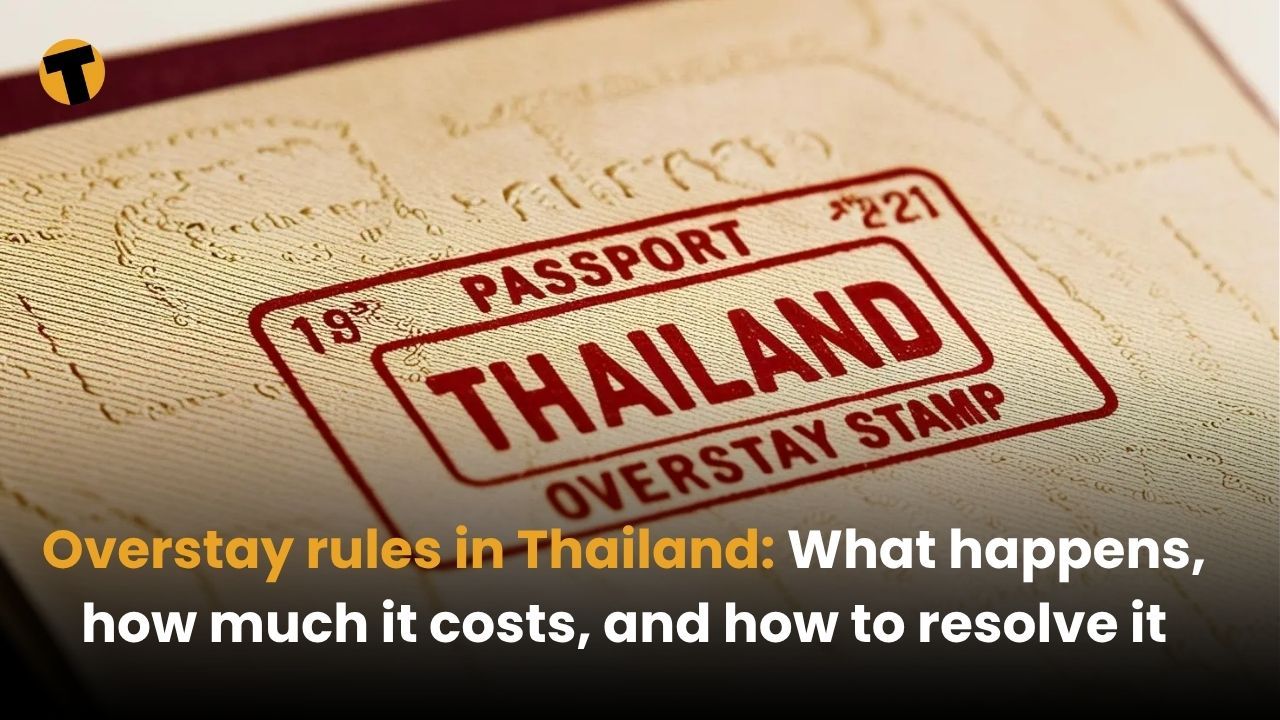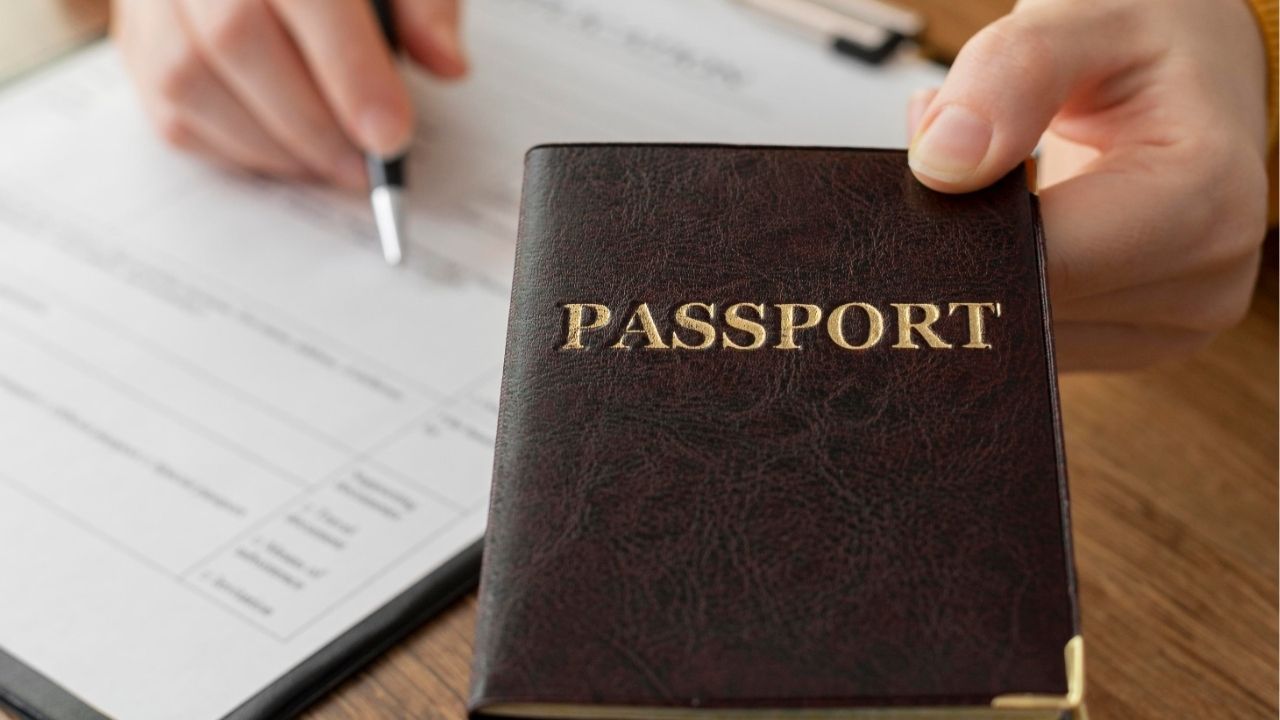Overstay rules in Thailand: What happens, how much it costs, and how to resolve it
What happens when your permitted stay runs out and how to handle it properly

The Thaiger key takeaways
- Thailand enforces strict fines and penalties for staying beyond your permitted date, with no official grace period.
- Short overstays usually mean fines, while longer overstays can lead to bans, detention, or deportation.
- Resolving the issue quickly, either by leaving or contacting immigration, is essential to avoid serious consequences
If you’ve ever lost track of dates while enjoying your time in Thailand, you’re not alone. But when it comes to immigration law, overstaying your visa, even by a day, is no small matter. Whether you’re here on a tourist visa, visa exemption, or another type of stay, Thai immigration takes overstay violations seriously. Here’s what you need to know about what qualifies as overstaying in Thailand, how much it can cost you, and how to deal with it under the latest rules.
Overstaying in Thailand
| Section | Short Summary |
|---|---|
| What counts as overstaying in Thailand? | Explains how overstaying starts the moment your permitted stay expires, with no legal grace period. |
| How much are the overstay fines? | Breaks down daily penalties, the maximum fine, child exemptions, and where fines are paid. |
| What happens if you leave voluntarily after an overstay? | Covers what happens when exiting the country voluntarily and why short overstays rarely lead to bans. |
| Long overstays and immigration blacklisting | Outlines thresholds for blacklisting, the duration of bans, and differences between leaving and being caught. |
| What happens when you’re blacklisted? | Describes deportation, travel bans, immigration records, and visa difficulties that follow. |
| How to resolve an overstaying in Thailand | Guidance for minor, moderate, and long overstays, including when to contact immigration or your embassy. |
What counts as overstaying in Thailand?

In Thailand, your permitted stay is determined by the stamp or visa in your passport; this could be 30 days under a visa exemption or 60 days with a tourist visa (which can often be extended). Once that date passes, even if it’s by accident, you’re officially overstaying.
Whether it’s a simple miscount, a missed flight, or confusion over dates, any time spent in the country beyond your allowed stay is considered a violation of Thai immigration law. There is no legal “grace period.” That said, immigration officers may waive the fine for very minor overstays (e.g., a few hours or one day), particularly if you can show a genuine mistake and handle the situation respectfully at the airport or border checkpoint.
Still, leniency is never guaranteed, so it’s always best to leave or extend your stay before your permission expires.
How much are the overstay fines?
Fines are fairly straightforward:
- 500 Baht per day of overstay
- Maximum fine: 20,000 Baht (for 40+ days of overstay)
- Children under 15 are exempt from paying fines but still receive an overstay stamp
So, for example, if you overstay by seven days, you’ll be fined 3,500 Baht. These fines are usually paid at the airport immigration counter or, in some cases, at a local immigration office if you’re resolving it in-country.
Tip: If you’re on your way to the airport and know you’ve overstayed, make sure to bring enough cash to pay your fine. Failing to do so can result in delays—or worse, detention while you find a way to settle the amount.
What happens if you leave voluntarily after an overstay?

If your overstay is under 90 days and you leave the country of your own accord, you’ll simply pay the fine and receive an overstay stamp in your passport. The good news is, for most short overstays, this doesn’t result in being blacklisted or banned from re-entering Thailand.
However, repeat offenders can be flagged by immigration and labelled as “undesirable aliens,” which may affect future visa applications or re-entry approval. So while one small overstay isn’t the end of the world, don’t make it a habit.
Long overstays and immigration blacklisting
Here’s where things get more serious. Overstaying more than 90 days triggers Thailand’s immigration blacklist rules. This means, in addition to fines, you may face bans from re-entering the country:
Voluntary departure overstay bans:
- Overstay 90 days to <1 year: 1-year ban
- Overstay 1–3 years: 3-year ban
- Overstay 3–5 years: 5-year ban
- Overstay over 5 years: 10-year ban
These bans take effect the day you leave Thailand, and they’re strictly enforced.
If you get caught (not leave voluntarily):
- Overstay under 1 year: 5-year ban
- Overstay over 1 year: 10-year ban
Being caught overstaying, even by just one day, can result in immediate detention and deportation, especially if you’re flagged during immigration sweeps or any other legal issue.
What happens when you’re blacklisted?

If you’re blacklisted, you’ll be deported at your own expense and stamped accordingly in your passport. This record makes future visa applications more difficult, and Thai immigration is unlikely to waive the ban—even if you have family in Thailand or other compelling reasons.
In extreme cases of long-term overstays (spanning several years), you may be taken to court rather than simply fined. Immigration may hold you in a detention centre until deportation arrangements are made. This usually involves a judge imposing a smaller court fine in place of the 20,000 Baht penalty, but the process is more complex and far less comfortable.
How to resolve an overstaying in Thailand
If you find yourself in overstay territory, don’t panic, but don’t ignore it either. What you should do depends on how long you’ve overstayed:
If it’s just a day or two:
- Pay the fine at the airport when you depart.
- Be polite and honest as immigration officers might waive the fine for a one-day mistake.
- You’ll get an overstay stamp, but there are usually no further issues.
If it’s a few days or weeks:
You have two main options:
- Leave the country: Go to an airport or land border, pay your fine, and exit. The sooner you leave, the cheaper the fine.
- Visit immigration for an extension: If your visa allows it, pay the overstay fee and apply for an extension. Note: the fine continues to accumulate each day until the extension is granted.
If you can’t travel due to special circumstances:
Medical emergencies or lost travel documents may prevent you from leaving. In that case, contact your nearest Thai immigration office or embassy immediately. You may be granted a temporary solution, such as an emergency visa, but the key is to be proactive and transparent.
If you’ve overstayed by over 90 days:
At this point, it’s best to surrender voluntarily. Trying to leave through normal airport channels may result in arrest. Instead:
- Contact immigration to report yourself.
- Prepare your exit strategy (book a flight, contact your embassy, etc.)
- Consider speaking with an immigration lawyer for smoother processing.
Turning yourself in won’t remove the ban, but it’s often viewed more favourably and can reduce the risk of detention or further penalties.
Overstaying in Thailand might seem like a minor issue, especially if you’re only a few days over. But the rules are clear and strictly enforced. Whether it’s a simple miscalculation or an unavoidable delay, your best course of action is to resolve the overstay as quickly as possible.
Avoiding overstay altogether is the easiest solution. Mark your visa expiry date in your calendar, and if you need more time, arrange an extension with immigration in advance.
In Thailand, overstays cost you time, money, and potentially your ability to return. But by knowing the rules and acting responsibly, you can keep your travel plans on track and your immigration record clean.
Latest Thailand News
Follow The Thaiger on Google News:


























